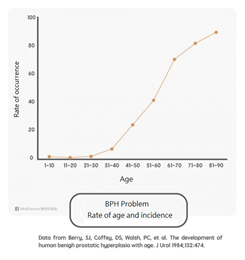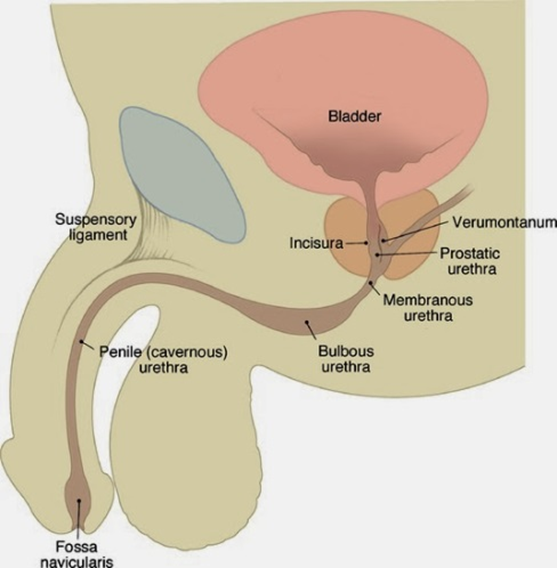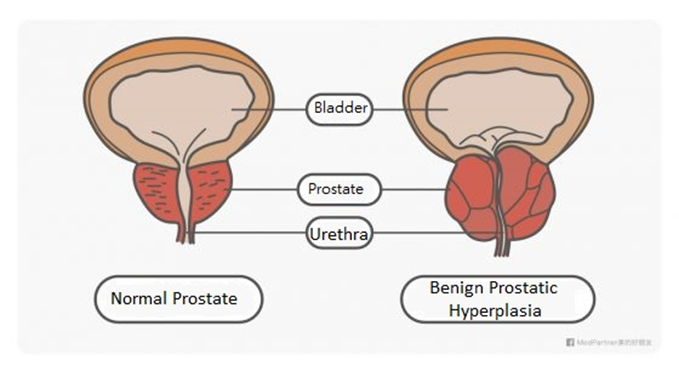Do you know your risk for developing benign prostatic hyperplasia (BPH)? You should read carefully and share this article.
Let’s look at following graphic first.
More than half of men over the age of 50 have benign prostatic hyperplasia. However, it turns out that around 8% of men between the of age 30 and also have this condition, and if they live over the age of 80, up to 80% of them may have trouble with benign prostatic hyperplasia. Don't think that this issue is irrelevant to you. According to this graphic, it is statistically and highly likely that you may have this problem someday if you are male.

In 2011, a European study surveyed 1,161 patients with benign prostatic hyperplasia. They found that these patients put off seeing a doctor for 23 months on average after experiencing BPH symptoms. Research in Asia also indicated that 76% of men believe that benign prostatic hyperplasia (patients with a velocity of urine stream less than 15 ml/s) will not affect their lives. Many elderly men don’t understand it or perhaps are too shy to see a doctor. Please continue to read more and you will understand why the idea that ‘’Benign prostatic hyperplasia won’t affect my life’’ is not totally true.

Causes, Symptoms and Screening of Prostate Hypertrophy
The prostate is a gland that surrounds the upper part of the urethra and secretes prostatic fluid. It injects fluids into the urethra during ejaculation and mixes with sperm and secretions from the seminal vesicle to become semen.
With age, the prostate may enlarge, which means the number of cells in the prostate increase gradually. It sounds horrible because cancer also happens this way. However, don’t forget the “B” in BPH stands for benign. As long as you follow your doctor's instructions, you do not have to worry too much. Up to present, the mechanism of action for prostate hypertrophy is not clear, but there are some relevant factors, such as genes, age, androgens, inflammation, obesity, and increase of waistline. As you can see, not all of these factors can be controlled or prevented. In fact, managing weight is probably the only one we can have some control of. The normal prostate is about 20 grams, but the prostate of a patient with BPH can grow twice as big in size, sometimes even bigger.

Let's look at the prostate from a different angle. Because of its position, once the prostate grows it does not affect sexual activity for men, but it will cause many urethra-related symptoms. That is because of the compression of the bladder and urethra. These symptoms can be divided into two conditions: storage and expulsion of urine.
The reason is simple: a hypertrophic prostate narrows the urethra and produces urinary expulsion symptoms. For example, standing up for longer periods to urinate, interrupted urination, urinating for a long time, slow urination, frequent urination and other conditions. If the prostate presses upward on the bladder, symptoms of urinary storage will occur, like frequent urination, acute urination, nocturnal urination, or even worse, acute urinary incontinence. Urinary symptoms may also lead to urethra infections. Urinary storage symptoms often lead to a decline in quality of life. If you have to pee five times a night or even accidentally experience incontinence outside of the restroom, that can be a nightmare.
You can see the effects of BPH when you go to a public restroom (but keep a low profile or you’ll look like a pervert). Young men go to the urinal, splash, zip, and leave, but elder men often stand for a long time without urinating. In addition, when they finally do it, urine drips down to their shoes.
The prevalence of benign prostatic hyperplasia is high, so there is an international questionnaire to find out if you have benign prostatic hyperplasia or not.
Come back next week, we will tell you the way to inspect if you have benign prostatic hyperplasia or not. See you then.
No comments:
Post a Comment